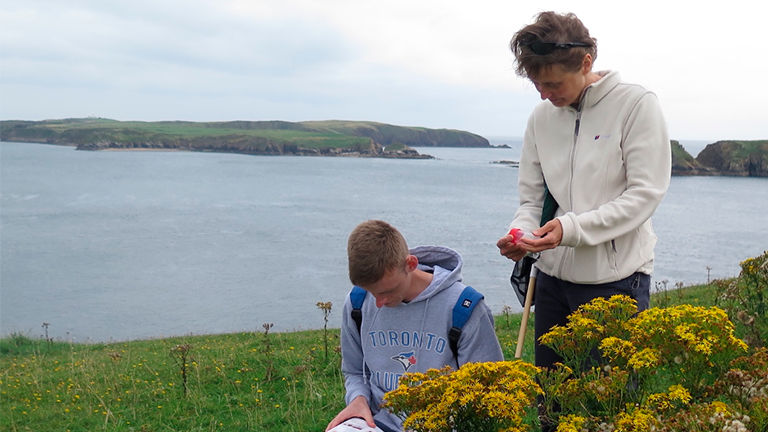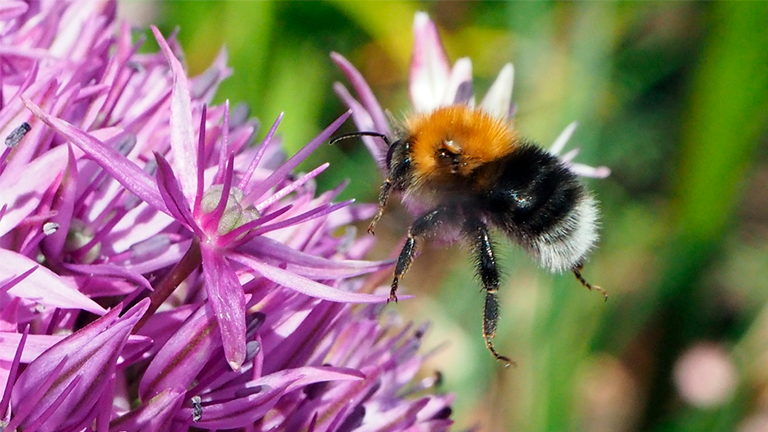On World Bee Day we chat to Barnaby Smith, public engagement manager for the Bumblebee Conservation Trust, about bumblebees and the Trust’s citizen science projects.

Can you tell us about the Bumblebee Conservation Trust?
The Trust is a science-and-evidence-based charity and works to inspire people to save the UK’s 24 bumblebee species. Much of this work involves awareness-raising and education about habitat management, from gardening advice to promoting the ‘No Mow May’ campaign. And citizen science also plays an important part!
What citizen science projects do you organise?
The Trust’s main citizen science project is the BeeWalk. This is a transect survey in 600 to 700 approved UK locations, walked by about 500 volunteers once a month between March and October. Citizen scientists receive training and mentorship for species identification, and record both the number of bees and the species they see along the way. The project has been running for 11 years, and thanks to the citizen scientists’ data collection, trends are now starting to appear which are important for formulating and testing policies. Tentative links are emerging which show that targeted conservation efforts are increasing observations of rare bumblebee species that may only be found in a couple of locations in the UK. For example, the Great Yellow Bumblebee was once widely distributed in the UK, but is now found only in a few locations in Northern Scotland.

How do you make your projects open to everyone?
The Trust is keen to make citizen science as inclusive as possible, inspiring people to get outside and involved with wildlife – no matter what their skill level is. It also supports less intensive citizen science activities, such as identifying bees in local parks and home gardens using our education resources, and recording observations on apps such as iRecord. The Trust is planning to involve more volunteers and has begun a ‘Skills for bees’ project. This is a training programme to develop sustainable BeeWalks, knowledge and skills in Wales, and it will soon expand to Scotland.
How might some of Cos4Cloud’s tools and services support your projects?

Looking to the future, the Bumblebee Conservation Trust is excited for identification technologies which may aid volunteers, such as Cos4Cloud’s services Biodiversity-DL and AI-Naturalist, especially as many volunteers have become more tech-literate over the past year. As part of the Rethink Nature group, a body of seven species conservation charities working together in the UK, the possibility of sharing data and single logins, such as with Cos4Cloud services Cos4Bio and Authentix, is particularly relevant for the Trust’s science team.
Barnaby Smith, public engagement manager for the Bumblebee Conservation Trust, about bumblebees and the Trust’s citizen science projects.
To get involved with citizen science for bees, visit the Bumblebee Conservation Trust’s website
To learn more about Cos4Cloud services for citizen science, visit the project’s website.

















